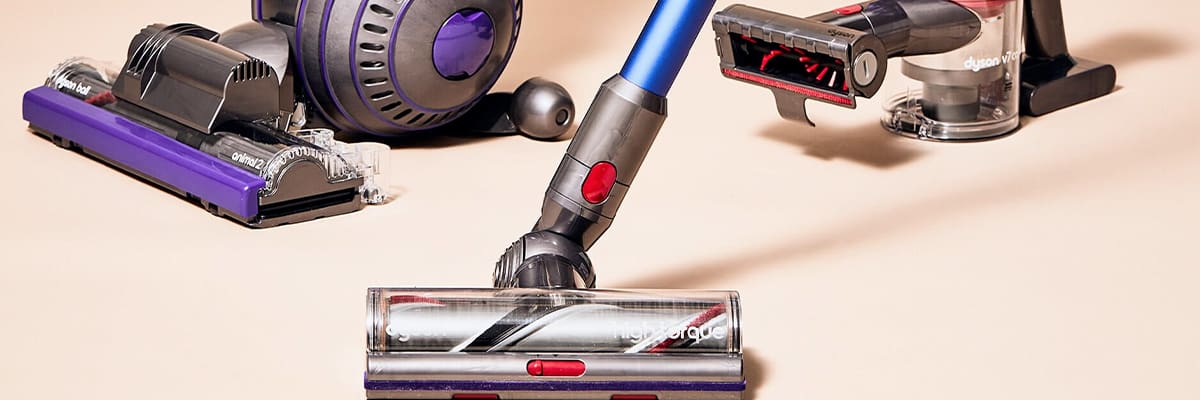
Return navigate_next
Do You Need a Protection Plan for a Dyson Vacuum?
May 18, 2023 *
Consumer Reports conducted a consumer reliability survey for vacuums and found an average lifespan of eight years across various models and brands. In addition, the magazine clarified that they uncovered quite a bit of variability, with some brands lasting much longer than others.
Knowing how long your Dyson vacuum will last will help you set appropriate expectations and help you make the right protection decisions. Here’s everything you need to know about repairing and replacing Dyson vacuum cleaners.
How Long Do Dyson Vacuums Last?
Because many people discard vacuums instead of repairing them, product researchers admitted that the survey might not accurately answer how long vacuums should last. On average, however, Dyson vacuums last between eight and ten years.

To improve the lifespan of any vacuum, keep the machine as clean and free of clogs as possible. Also, explore repairs because some inexpensive fixes might significantly improve the device’s useful life.
Should People Repair or Replace Dyson Vacuums?
As a vacuum manufacturer, Dyson takes a lot of pride in the quality of its craft and components. As a result, Dyson vacuums generally get good marks for their durability. At the same time, the expected lifespan and durability also depend upon the type of vacuum.
Mostly, people don’t expect lithium batteries to last more than a few years. For instance, the Dyson rechargeable vacuums don’t appear to last as long as the corded models. Dyson seems to agree with this by offering a shorter manufacturer's warranty on their rechargeable vacuums than their corded ones. On the other hand, vacuum owners can order replacement batteries from Dyson or buy them from third parties.
Does a Dyson Vacuum Need a Protection Plan?
Dyson has plenty of confidence in their products, and they offer relatively generous manufacturer’s warranties. For example, the Dyson initial warranty lasts two years on rechargeable vacuums and five years on corded models.

The company promises to repair or replace defective parts, including batteries, for the length of this contract. Customers with an active Dyson warranty can use local Dyson repair shops. Otherwise, Dyson will pick up the vacuum for non-local repairs.
Still, Dyson’s warranty page contains a sizable list of things they will not cover under the initial warranty. These include premature wear, not carrying out the recommended service steps, power surges, and many more.
Dyson makes high-quality products, but they also charge top-tier prices. Few consumers will feel happy to pay for repairs shortly after purchasing a new vacuum because the Dyson warranty reps found they neglected a step on the service schedule or suffered from an unpredictable power surge. In short, the Dyson warranty only covers damage from errors in components or workmanship but not any external hazards.
Upsie Offers Protection Plans for Dyson Vacuums
For comprehensive coverage, pair your Dyson vacuum with an Upsie Dyson vacuum protection plan. Upsie offers affordable protection with intuitive terms. For example, consider these primary reasons for purchasing a protection plan for a Dyson vacuum:

- This robust protection plan guards against mechanical, power, or computer chip failures.
- Protection extends to non-accidental failure of the appliance.
- Upsie customers have access to a network of local or mail-in service centers.
In addition, Upsie’s protection plans cost much less than the plans sold by retailers. The protection plan overlaps with the limited warranty from the provider and then takes over full coverage when the limited warranty expires — this ensures that your vacuum has complete protection.
Instead of worrying about high repair bills or discarding vacuums too frequently, buy an Upsie protection plan to keep the vacuum in good repair to extend its lifespan and enhance performance. Upsie also protects other brands of vacuum cleaners, outdoor gear, other appliances, and electronics.
Learn More About Small Appliances:
* This article is over 6 months old and may or may not be updated.
